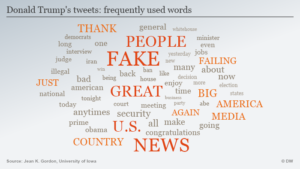The suggestion that empathy is a sin seems antithetical to Christianity, based as that religion is on the selflessness of sacrifice to save others. Yet, that is an idea that is now circulating among some Christian churches in the US. It has also been taken up by some on the political right. As laid out in an article in the New Yorker, the slogan went viral in connection with a prayer service held for President Trump’s inauguration in January. At that service, Bishop Marian Edgar Budde famously entreated the new president to show mercy to those who feared his return to office. The reaction from Trump and others supporting him was predictably negative (he used his favorite epitaph for disliked women, “nasty”), while a podcaster, tweeted a photo of Budde in a miter and said, in part, “Do not commit the sin of empathy.” Actually that phrase, and the idea behind it, had already been in circulation in Chirstian evangelist circles, in particular as the title of a book by Joe Rigney.
As laid out in the New Yorker article (and in a post on Medium by Dan Foster), the main idea behind promoting empathy as a sin is to attack the political left (and their advocacy for helping minority groups like African Americans or the LGBT+ community) and to justify political positions on issues such as mass deportation of immigrants or defunding foreign aid. In the Medium post, the author points out that the idea that “too much” compassion is dangerous is not new, but in recent years has gained traction in certain Christian circles among those who view faith as primarily about defending truth rather than embodying love:
If we show empathy to the LGBTQ community, then, according to this logic, we risk “endorsing sin.” If we grieve with refugees torn from their homes, we’re being manipulated by their suffering. If we acknowledge the pain of racial injustice, we’re compromising biblical truth in favor of a “woke” agenda. According to Rigney, compassion is good because it allows you to care while maintaining control. Empathy, however, is dangerous because it involves stepping into another person’s experience so deeply that you risk losing perspective. Under Rigney’s logic, the real danger of empathy isn’t just that it clouds judgment — it’s that it might lead us to feel too much for the wrong people. That if we sit too long with the grieving, the suffering, the broken, we might start to understand them. And if we understand them, we might start to care about their pain in a way that disrupts our theology.
That empathetic feeling, the argument goes, will lead us away from the ability to make black-and-white moral distinctions and we will make the mistake of caring what happens to those less fortunate. From this perspective, “Once you allow yourself to enter another person’s suffering, judgment doesn’t come as easily. Once you truly see someone, condemnation becomes harder to justify” (Foster). The author points out that this is what made Jesus in this time “so scandalous”:
When he let a sinful woman pour expensive perfume on his feet and wipe them with her hair, the Pharisees were appalled. If this man were a prophet, he would know who is touching him and what kind of woman she is — that she is a sinner (Luke 7:39). When he healed a man on the Sabbath, they accused him of violating God’s law. When he dined with tax collectors, they called him a glutton and a drunkard. When he saved the life of a woman caught in adultery, they saw it as moral compromise. At every turn, the religious leaders of Jesus’ day were terrified that his kindness looked too much like approval. In fact, these kinds of “crimes” led Jesus all the way to the cross. Jesus was too empathetic. They were afraid he was endorsing sin. And that’s exactly what’s happening in the modern argument against empathy.
To the religious authorities of his day “Jesus’ empathy looked like moral compromise. It looked like an endorsement of sin”:
But Jesus wasn’t afraid of that accusation. He knew that love was costly. He knew that truly seeing someone in their pain often made the self-righteous uncomfortable. And he knew that a religion built on purity and certainty, instead of love and grace, would never reflect the heart of God. So if empathy is a sin, then Jesus himself was guilty of it. But, of course, it’s not. Because when you strip empathy out of faith, what’s left? A religion that justifies cruelty in the name of truth. A religion that prefers certainty over kindness. A religion that sees suffering and asks, What did they do to deserve it? instead of How can I help? And that isn’t Christianity (Foster).
It also is not just and approrpriate public policy.



